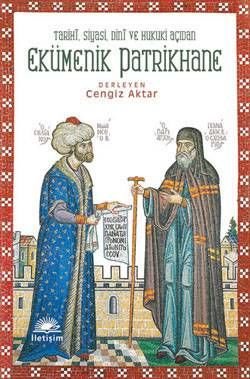
Ecumenical Patriarchate
In the 6th century, the ecumenical title was given to the Patriarch of Constantinople because he was the bishop of the capital of the Roman Empire. Following the conquest, Mehmed the Conqueror declared his intention to include the universality represented by the authority in question in his politics while establishing the Great Church, the only legitimate institution that was transferred from the Byzantines to the Ottomans without any change.
The religious as well as political place and meaning of the Patriarchate, which lasted uninterruptedly from Eastern Rome to the Republican period, ended with the Republicans' understanding of secular politics that excluded religion. In the Treaty of Lausanne, the ecumenical status of the Patriarchate and the spiritual powers resulting from it were approved to the extent that they were not subject to dispute. However, the Patriarch and the Patriarchate became the "other" of the new nation-state politically and of the positivist vision that considered secularism as a worldly religion, just like the caliphate.
This "obsession" with the Patriarch and the Patriarchate, which started with Lausanne, continues today as a pointless debate about what the religious title of the Orthodox Patriarchate should be in Turkey, where Islam is widespread. While the articles in the Ecumenical Patriarchate address the historical, religious, legal and political dimensions of the subject, they aim to eliminate the lack of information and clear the information pollution.
With articles by Alexis Alexandris, Baskin Oran, Cem Sofuoglu, Cengiz Aktar, Elçin Macar, Emre Öktem, Kürsat Demirci, Panteleimon Rodopoulos, Paraskevas Konortas and Samim Akgönül…
Number of Pages: 253
Year of Printing: 2011
Language: Turkish
Publisher: Iletisim Publishing
Number of Pages: 253
First Print Year: 2011
Language Turkish
| Publisher | : | Contact Publishing |
| Number of pages | : | 253 |
| Publication Year | : | 2011 |
| ISBN | : | 9789750508646 |
| The heart | : | Turkish |


